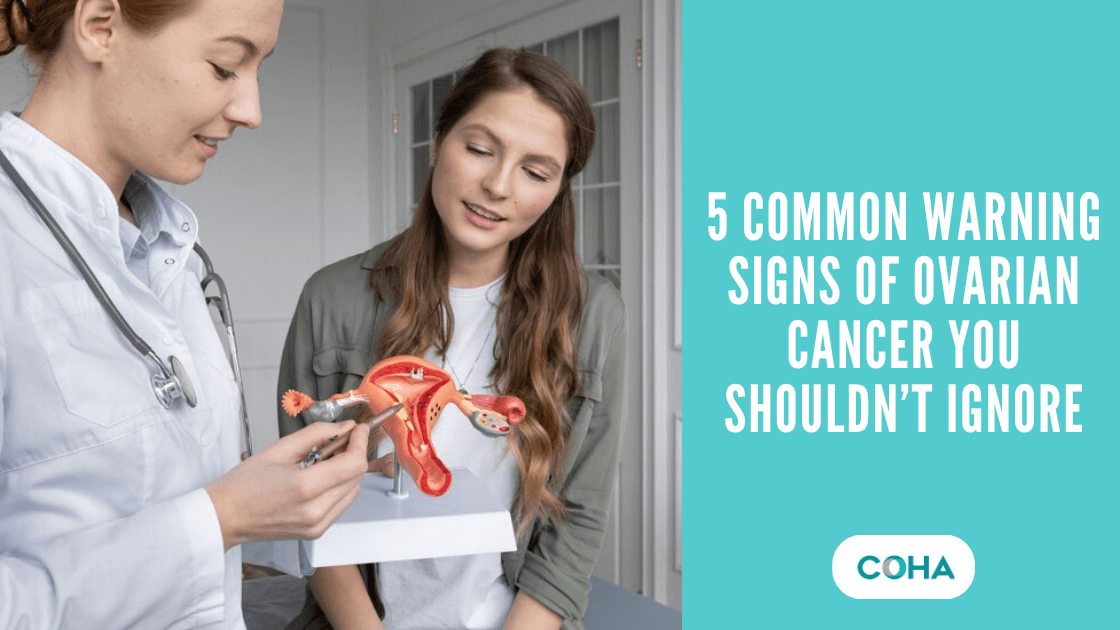


Ovarian cancer is often called a silent disease because its early signs can be easy to miss or mistaken for other common health issues. Many women are not diagnosed until the cancer has already progressed, making it more challenging to treat. That is why recognizing the early warning signs of ovarian cancer is so important.
Understanding what to watch for and acting quickly can make a big difference. Here are five common signs that may signal a need for further evaluation. Talk to your healthcare provider if any of these sound familiar or if you feel something is wrong.
1. Persistent Bloating
Bloating that does not go away after a few days or continues even when your diet has not changed could be one of the early signs of ovarian cancer. While many women experience occasional bloating related to digestion or their menstrual cycle, ongoing bloating should not be ignored.
You might feel like your belly is swollen or full, even when you have not eaten much. This discomfort differs from regular gas or temporary bloating and may signal something more serious.
2. Pelvic or Abdominal Pain
Pain or pressure in the lower stomach or pelvis can be another warning sign of ovarian cancer. This symptom often feels like a dull ache or ongoing cramping that does not go away. Some women describe it as similar to period pain but longer-lasting and without relief.
It is easy to assume menstrual changes, digestion, or bladder issues cause the pain. However, if the pain is new, persistent, or gets worse over time, it should be checked by a doctor.
3. Changes in Urination
Needing to urinate more often or feeling sudden urgency can also be a sign of ovarian cancer. These symptoms may be confused with urinary tract infections or age-related changes, but they should be taken seriously when they happen without any apparent reason.
If you wake up often at night to use the bathroom or feel like your bladder is not emptying fully, speak with your healthcare provider. Changes in bladder habits are one of the lesser-known but crucial ovarian cancer symptoms to be aware of.
4. Trouble Eating or Feeling Full Quickly
A loss of appetite or feeling full soon after starting a meal can also signal a problem. Women with ovarian cancer often report feeling full faster than usual, even when they eat small amounts.
This can lead to unexpected weight loss or poor nutrition. Since these symptoms may not seem serious at first, they can easily be overlooked. Tracking how often this happens can help your doctor decide if additional testing is needed.
5. Unexplained Fatigue or Weight Loss
Feeling tired for long periods without a clear cause may be one of the first noticeable signs. Ongoing fatigue can happen because your body is trying to fight something, or the cancer affects your energy levels.
Unexpected weight loss can also be linked to ovarian cancer symptoms, especially when combined with the other signs mentioned above. If you are eating normally but losing weight without trying, it is worth discussing with your doctor.
Having one or more of these symptoms does not automatically mean you have ovarian cancer. Many of these signs can be caused by other conditions. What makes them essential to watch for is their persistence. If the symptoms last over two weeks or worsen over time, it is time to seek medical advice.
Your doctor may recommend an ovarian cancer test, which could include a physical exam, imaging scans, or blood tests. If needed, they will guide you toward the right ovarian cancer treatment options based on your condition.
If ovarian cancer is diagnosed, there are several options for care. These may include ovarian cancer surgery, chemotherapy, targeted therapy, or a combination of treatments. The right plan depends on the cancer stage, your health, and your needs.
Treatment is most effective when cancer is found early. That is why it is so important to listen to your body and act quickly on concerns.
Catching ovarian cancer early makes a real difference in treatment and recovery. Recognizing the symptoms, even if they seem minor initially, can lead to faster answers and more effective care. You know your body best; if something feels off, speaking up is essential.
At Chesapeake Oncology-Hematology Associates, our team supports you with expert care, compassion, and answers you can trust. Do not wait if you are experiencing signs or symptoms that concern you.
Contact us today at (855) 920-1230 to schedule a consultation or speak with a provider. Early action saves lives, and we stand with you every step of the way.